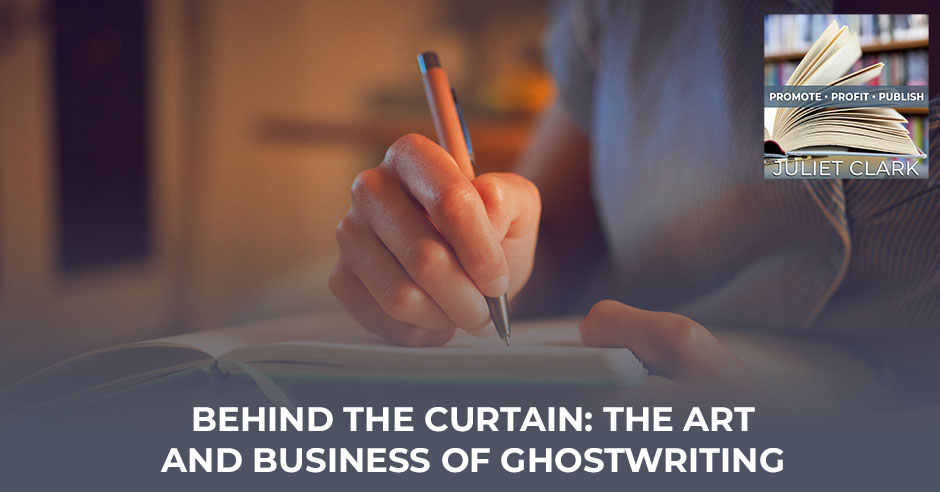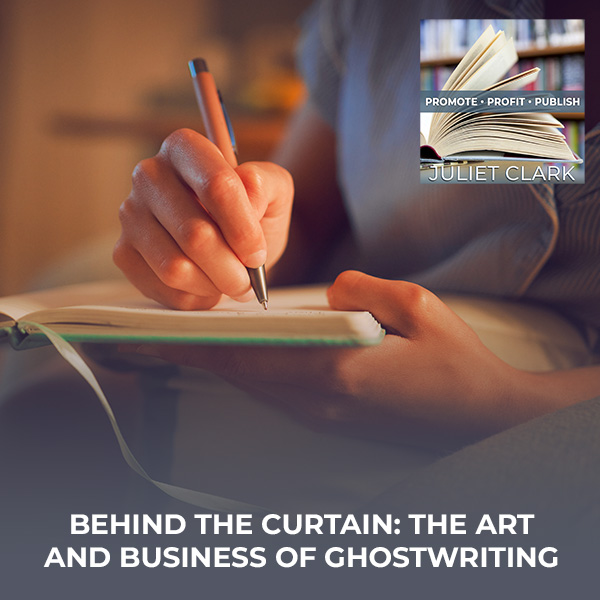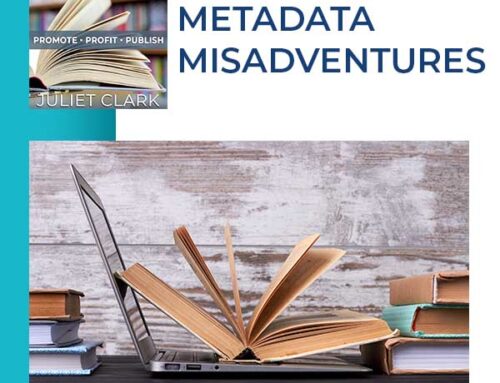
It is very satisfying to know that you helped spread great ideas to people who need them most. For ghostwriters out there, that is supporting leaders, entrepreneurs, and visionaries to share their stories and message. And this is exactly what Ally Berthiaume, the Founder of The Write Place Right Time, does. In this episode, she joins Juliet Clark to part the curtains and guide us behind the art and business of ghostwriting. Ally takes us into the process of ghostwriting a book, shedding light on the misconceptions around it and what clients should do from start to finish. Whether you are a ghostwriter or someone in need of the service, this conversation will help you understand how best to turn your ideas into magic. Tune in as Ally shares more of her insights!
—
Watch the episode here
Listen to the podcast here
Behind The Curtain: The Art And Business Of Ghostwriting
We have a fun guest in this episode. You are going to enjoy what she has to say, especially if you’ve ever thought about ghostwriting a book. Before we get started, I want to remind you to go over and grab your free copy or free subscription to Breakthrough Author Magazine. You can find that at BreakThroughAuthorMagazine.com. Go check out Author Traffic School. We have a huge amount of people going over there that are stunned by how much they don’t know that they’re now learning. Check out the courses at AuthorTrafficSchool.com.
Our guest is Alyssa Berthiaume. She is the Founder of The Write Place Right Time, her virtual boutique of book coaching and ghostwriting services. As a writing guide or ghost, she serves leaders, entrepreneurs, and visionaries across North America and Europe who know they have the power to activate healing for their own and their readers by sharing their stories and spreading their message. She supports her clients in writing books that will light up their world and ours.
Alyssa is also the author of Dear Universe, I Get It Now: Letters On The Art and Journey Of Being Brave And Being Me. Welcome, Alyssa. You are a ghostwriter and I don’t think people realize how in-depth ghostwriting is. Can you tell us a little bit about that process, and what are the biggest things that people should know that you think they don’t know?
I’m going to start with the second part, what people don’t know, and this will lead to what the process is. The first thing that people don’t realize is how intimate and how collaborative ghostwriting can be because ghostwriters are not going to learn your brain, voice, brand, message, expertise, life story, or whatever it is that you’re wanting them to write. They’re not going to learn that through osmosis. There’s no telepathy that’s happening in ghostwriting.
You have to be willing as the client to answer every single question no matter how big or small because it’s the only way that the ghostwriter is going to be able to authentically write as if they are you. They are essentially taking on your persona, voice, thoughts, and feelings because otherwise, it’s not going to be yours even if your name is on it. It needs to sound like you in order for it to be yours, not just because your name is attached.
That means that a part of the process is a lot of interviewing and communication. For the ghostwriter, it could also mean a lot of research. As a client, if you have lots of podcast interviews, keynotes, recorded presentations, or umpteen blog posts that have content that’s related to your topic, ghostwriters can spend hours reading or listening to the content that already exists out there. In addition to interviewing, before, they’re drafting and getting things down onto the page, or they’re doing those things simultaneously, depending on the individual ghost. Not every ghost is going to approach the writing process the exact same way.
The main thing is to understand that you’re not going to show up to one call and do a 90-minute dump, “This is my idea. This is what I ultimately want to say. This is my reader,” and then be able to walk away and have a book in twelve months or however many months it is. It’s an ongoing conversation and requires the client to partner in this, especially because it is theirs. The second thing that people don’t often know about ghosting is that we still consider the client the author because ultimately we’re a hired pen. That’s our role.
We are putting the words down onto the page, but the words are our clients. We are the conduit. We’re better at writing or we have more time for it because that’s what we do, whereas the client maybe doesn’t want to write, doesn’t know how to write, doesn’t want to spend their time writing, or doesn’t have the time to write. They’re hiring somebody else to do that heavy lifting but ultimately, it’s their intellectual property. It’s their content and ideas.
You wouldn’t want to just abandon the ghostwriter during this process because you have to be the one that represents and speaks for it on the other side. The book is only going to be as good as your involvement to guide the ship. The ghostwriter can offer suggestions and professional recommendations on how to develop the manuscript, which directions to take in certain chapters, and how to focus on certain things.
The book is only going to be as good as your involvement to guide the ship. Click To TweetAt the end of the day, it’s still the clients who give the stamp of approval to say, “I want to go there,” or “I don’t want to go there.” Those are a couple of big things. It’s understanding the process and that you’re not going to just hand a little bit over, then walk away and be hands-off. Another thing that people don’t understand about ghostwriting is that it’s expensive.
We talk a lot on the show about marketing being in alignment with who you are as a person because when you go out in public, people immediately get that disconnect. I’ve run into a lot of entrepreneurs who are, “I’m spiritual.” I was in a situation where I was at an event and the person who came off stage had a hot mic that said, “Get these people away from me,” after being this big spiritual person.
It’s the same thing with your book needs to be reflective and in alignment with you. It means you have to spend that time with yourself because when people meet you or there’s a book signing, they’re going to immediately get if you’re like, “Get these people away from me. I’m done signing my spiritual love. I love the universe and everybody on it.”
The other thing is what if you’re at an event and somebody’s like, “I noticed in chapter three that you said this profound thing. Could you expand on that?” “Chapter three, let me think about that for a moment.” You have to be as familiar with the text as the ghost because it’s yours. The ghost is going to be super intimate with it and you as the client author for however long the manuscript has developed. When that manuscript is done, the ghost’s job is done and they walk away.
They’re not a ventriloquist in the background helping you remember what’s in your book, what your book is about, what your platform is, or any of the ongoing things that we know as being in the industry happen after the book is out there. The manuscript is the beginning. It’s not the end. They have to be intimately entwined with this book from start to finish because their job is to continue to promote it for the rest of their life. They better be attached to it, invested in it, and understand what’s going on. They are the CEO of the operation, even if they’ve got the ghostwriter doing all the work.
“In chapter three, I said many profound things. Which one of them resonated with you most?”
There are some tactics you could use, but you better have a good sense of your book before you’re getting stumped on stage. People are like, “What is going on? This person doesn’t know anything about what they said in this book.”
How often do you get people that come in and say, “I don’t have time to write a book. Here’s $25,000. Write it for me,” and you have to say, “That’s not the way it works.” I know it’s very expensive, like $25,000 to 50,000, to have a book written. Do you get a lot of that where they come in and say, “I don’t have time to do it?”
I find that the people who come in and have $25,000 or $50,000 are the people who won’t spend the time. They got the money and then they find out, “For that amount, I thought that I could hand a little bit over and walk away. Isn’t that the point of being able to just hand it over to the person who has the skills?” I don’t know. Maybe that works in somebody’s model. It doesn’t work in mine. I am not a transactional sort in anything that I do. I believe in partnership and collaboration. I believe in the soul and my client’s projects.
One of the things that I always do during the sales process if somebody is interested in ghostwriting is a little bit of education. Do you know what you’re getting into? Do you know that this is what you want? Is it something that you think you want because you have a misconception of what ghostwriting is? There’s a little bit of education and the cost is usually a pretty good identifier. If I say a cost and their eyes go up to the ceiling, then that lets me know that they’re in over their head.
They had no idea and are expecting something else entirely. If I say the cost and they don’t bat an eye, but then when I start to talk about the process, I start to lose them and they’re glazing over like, “This is not for me. I’m going to go find somebody else who can do it differently,” then I also know that person is not going to be the ideal client for me. It’s going to be a giant pain in the butt the whole time because I’ll be trying to convince them to get invested.
Usually, it’s the people that are in the sweet spot where the investment is like a stretch but not impossible. They also have the right mindset and attitude that they are committed to this book. They know what they want to say. They have an exact understanding of how they wanted to help them, and they know that they can’t write it themselves. They’re totally cool with answering every question and reviewing stuff that has already been written. It’s a person in a happy medium.
I anticipated the steps you just said going into ghostwriting. I had it written off a course I had. What I didn’t anticipate was she got my voice and everything but she didn’t understand the course. I could tell when I went back through it. I had to do a lot of rewriting around that because I could see that she didn’t understand it enough to segue correctly. I don’t think there’s a right or wrong way but to my satisfaction. I did not anticipate that when I hired a ghostwriter.
That was a big mistake on my part, not thinking that she wouldn’t understand the material. That’s one reason why you should have an intimate relationship where you’re talking and asking questions. You’ve been on both sides of this. You’ve written memoirs for other people. I have ghostwritten a couple of books. I hate it. I gave it up. I have no business being a ghostwriter, but you’ve also written your own books, which is the same as I. Talk about those differences in doing those two things.
The first one that comes to mind is speed, efficiency, and accuracy. When you know yourself, your own stories, your thought process, and your own expertise, it’s a very different lift for you to outline and organize your own thoughts because you’re not having to do the work of interrogating yourself. That’s not to say that there won’t be places where you need to go and fact-check something or you need to dive a little bit deeper into a piece of your own material.

Ghostwriting Business: When you know yourself, your own stories, thought process, and expertise, it’s a very different lift for you to outline and organize your own thoughts because you’re not having to do the work of interrogating yourself.
There are far fewer questions and gaps to fill because it’s you and you’re intimately familiar with yourself. You can go straight to the outline or straight to the page and get busy, and not have to touch somebody else all the time to say, “I need.” Whereas in ghostwriting, and I’m feeling this especially right now, I have three manuscripts in process. I wouldn’t recommend that. I’m learning my own bandwidths.
It feels a little bit like 5 steps forward and 3 steps back like I got this draft to a point. I need all this information so I can round it out. I get the information and then now that I have that information, I realize that this whole part doesn’t make sense anymore. It’s hard to predict what you might need to know until you’re in it. I’m ghostwriting a manuscript right now for a client. Its memoir. I’m working on a chapter where he’s moving from one form of therapy to another form of therapy.
I know the high-level facts, but then when I sit down to try to put it into a scene where he’s speaking to the therapist, all of a sudden I realize, “I don’t know how he would sit on the couch. Would he cross his legs? Would he sit with his arms folded across his chest? Does he glance out the window and not make eye contact while he’s conversing with them? What might be a common phrase that he would say? Does he have a nervous habit?” That would be happening.
There are all these details of what’s going on in a moment that we’re not aware of to necessarily think to ask before realizing as we’re on the page. We got to bring this thing to life. We have to have everybody be able to take a 360-degree view of the room and what’s happening. With non-fiction like business books, thought leadership, and those types of things, it’s less of a lift. When you start to get into specific niches or industries that you’re not maybe familiar like, I’m not a sales and startup kind of person, but I’m working on a manuscript with somebody in that space, there’s a lot of disconnect for me with the material because I’m not in that industry.
I’ll be trying to blend blog posts, podcast interviews, or things that she says on the call. I’m like, “I think that these pieces go together but I’m not entirely sure.” Now I have to have a different kind of conversation, “I blended these three things. Does this sound accurate to what occurs and does this sound like the way you would explain it?” There are two separate filters there, the accuracy of material and then voice and personality. These are not just things that when you’re writing for yourself, you’re concerning yourself with.
That’s when I stopped ghostwriting. Someone came to me with a lifestyle brand that she had no idea what her lifestyle brand was. When all was said and done, I sounded like a toned-down cosmo. I have the year-end astrology or horse thing. It was a big lesson learned about if she doesn’t know who she is and what she wants to do, she’s not going to be able to communicate that. That was such a frustrating project for me.
The feedback I got from somebody who knew I wrote it said it was a very generic beauty and health book, which disappointed me because I wrote it and I wanted it to be good. On the other hand, I wrote it for someone else who didn’t know what she wanted and didn’t have. That’s something that you probably have to look at when you take people on. If they are branded, “Is this on brand? Is it in alignment? Do they know what they want? Do they teach something?” There are a lot of parts there. I did a lot of research for the book. It wasn’t just, “I’m a woman and I got this nailed.”
The other thing too is that I am a firm believer of the stronger your foundation, the easier you’ll be or the easier you’ll project will go. I know that other ghostwriters do not work like this because I partnered with one and it was a disaster. Anytime I work with anybody, whether it’s a coaching client or ghostwriting client, my foundation is to outline the entirety of the book in as much detail as I can. When I say outline, I don’t just mean table of contents and chapter abstracts. I want them to tell me what their why is. I want to know what the mission and vision of their books are.

Ghostwriting Business: The stronger your foundation, the easier you’ll be or the easier your project will go.
I want to know what’s the endgame for them, “What the heck are they doing with this thing on the other side? What’s their platform? Do they know how they’re planning to publish? Where do you think it’s going to sit on the shelves in the bookstore? If you haven’t thought of that, let’s talk about that. Who are you trying to reach? Don’t tell me everybody because I will gouge your eyes out. Don’t even try that crap with me.”
I’m like, “If you want to do this thing, you’re in it for the long run. This is a long game. This is not a sprint. This is a marathon.” I don’t feel like I would be in integrity if I didn’t help them determine those answers because they’re not going to have a successful book on the other side if they don’t know any of that out of the gate. I certainly won’t know how to develop a manuscript without those answers because there are many decisions we can make when we know who we’re writing to and what the purpose of our book is. Not just for our readers but for ourselves. What are we trying to do with it? If you’re trying to get speaking gigs out of it, but you’re boring as all get out inside this book, good luck.
If you don’t have main ideas, tenets, or takeaways, you’re probably not going to be a very good motivational speaker. People are probably not going to read your book then have that translate to thinking you’ll have something to say on stage. There are lots of different things that have to happen in the very beginning that is often overlooked and skipped. I noticed this also with clients who are trying to write for themselves. They go straight to the blank page, sit there, stare at it, and they’re like, “Why is it so hard? I couldn’t think of anything.” I’m like, “Did you think about what you wanted to say before you sat down to say it?” “No.”
“What do you think was going to happen? Did you think like a little muse was going to dance across the screen, nudge you and give you a breadcrumb? You got to back it up.” Writing is so much more than just sitting down and putting words on the page. There are way more elements and pieces to it. People don’t often realize that.
Writing is so much more than just sitting down and putting words on the page. Click To TweetWe have a book developer that we used to get books from. I had to put a stop to it because the book would be written and it would get to me and I’d say, “Who is your ideal audience?” The book developer had put out these great big ideas, “It’s a psychiatrist. It’s this or that,” then I look at what’s relevant in the world today and who is this audience. We would be switching gears on messaging, having to go back and make some changes because the book world is not that big easy money maker that everyone thinks it is.
You have to have a relevant topic and an interesting topic. That audience has to be very niche and you should already be talking to them. We took on a client back in February and I put him through our Build Your Author Avatar program. He came back and he argued with me about it. I was like, “I’m sorry. Those are the profiles. Choose one. Your audience is not every Millennial on the planet. There’s a particular kind of Millenials,” because he said it’s Millennials.
There’s no difference between any of them. They are all homogenous. It was interesting that he was willing to argue with me about which profile here because the words you use matter with each group. Those words have to mean something to them. The book was written. It was at the editor already and it’s like, “You have to have this nailed in advance.” Ally, where can we find you if we would like to hire you?
It’s TheWritePlaceRightTime.com.
Do you have anything that you’d like to give away?
If people head over to TheWritePlaceRightTime.com and they go to Guide, they can grab The Five-Step Writing Guide to finishing a memoir that will light up your world in hours.
Thank you so much for sharing that with my audience. Thank you for being on the show.
Thank you so much for inviting me.
Important Links
- BreakThroughSuthormagazine.com
- AuthorTrafficSchool.com
- The Write Place Right Time
- Dear Universe, I Get It Now: Letters On The Art and Journey Of Being Brave And Being Me
About Ally Berthiaume
 Alyssa Berthiaume is the founder of The Write Place, Right Time, her virtual boutique of book coaching and ghostwriting services. As a writing guide or ghost, Berthiaume serves leaders, entrepreneurs, and visionaries across North America and Europe who know they have the power to activate healing (their own and their readers’) by sharing their stories and spreading their message. She supports her clients in writing the book that will light up their world and ours. Berthiaume is also the author of Dear Universe, I Get it Now: Letters on the Art and Journey of Being Brave and Being Me.
Alyssa Berthiaume is the founder of The Write Place, Right Time, her virtual boutique of book coaching and ghostwriting services. As a writing guide or ghost, Berthiaume serves leaders, entrepreneurs, and visionaries across North America and Europe who know they have the power to activate healing (their own and their readers’) by sharing their stories and spreading their message. She supports her clients in writing the book that will light up their world and ours. Berthiaume is also the author of Dear Universe, I Get it Now: Letters on the Art and Journey of Being Brave and Being Me.
Love the show? Subscribe, rate, review, and share!
Join the Promote, Profit, Publish Community today:
- superbrandpublishing.com
- Promote, Profit, Publish on YouTube
- Follow Juliet on LinkedIn
- Take the Quiz!










Leave A Comment